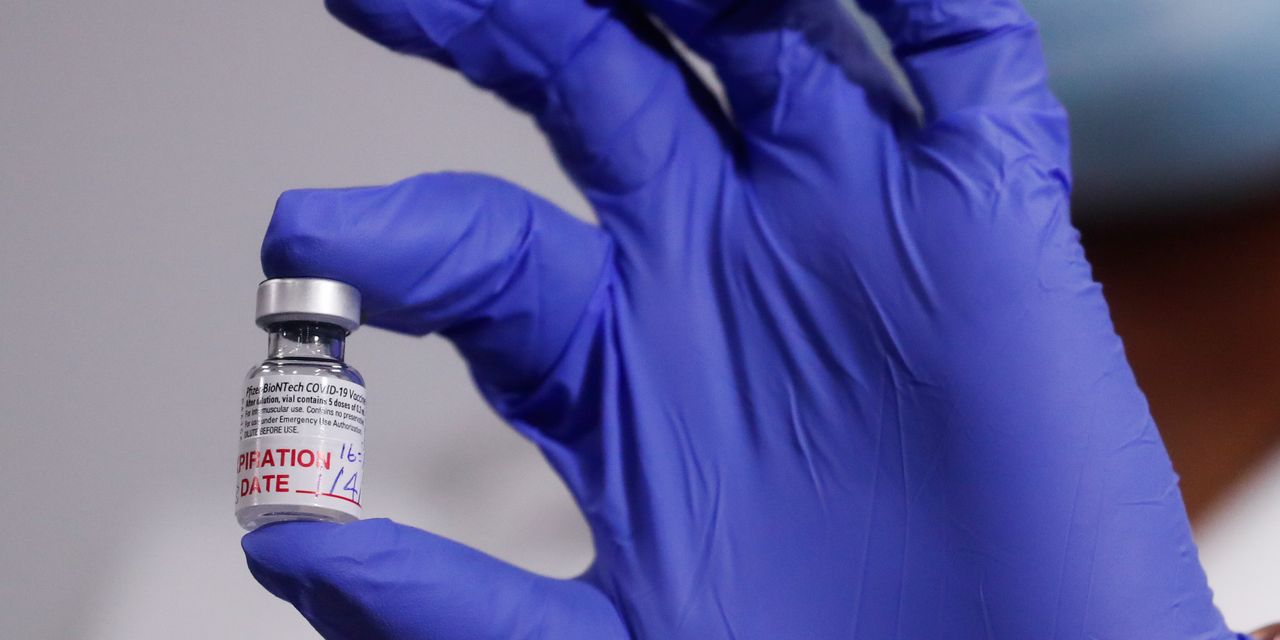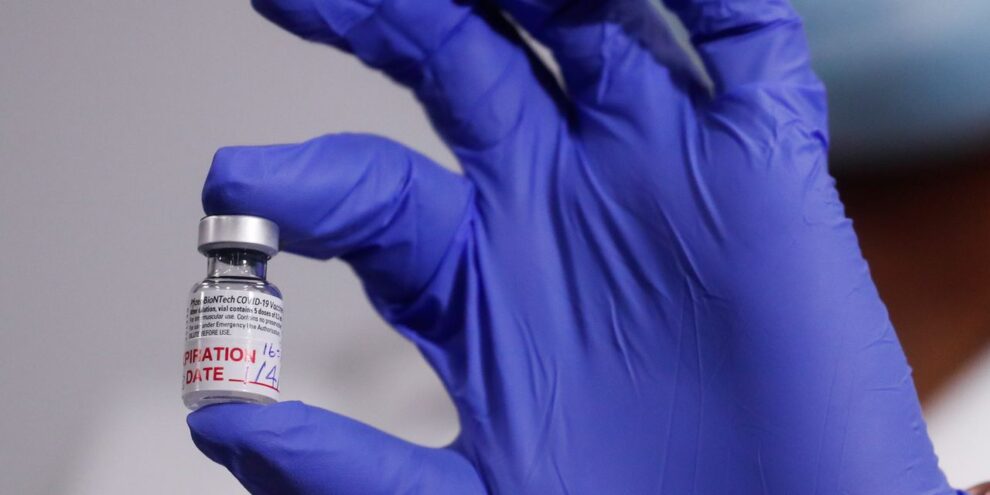
People with a history of severe allergic reactions should be monitored after receiving the first dose of a COVID-19 vaccine and should reconsider getting the second dose if the anaphylaxis is severe, U.S. health officials said Wednesday.
Approximately 20 people have had confirmed cases of anaphylaxis after receiving the first dose of BioNTech SE BNTX, +7.15% and Pfizer Inc.’s PFE, +0.19% COVID-19 vaccine, as of Dec. 23, according to the Centers for Disease Control and Prevention, which published new interim guidelines for anaphylaxis as it relates to the mRNA-based COVID-19 vaccines. In total, there have been 29 cases.
During a call with reporters, CDC officials cautioned that severe allergic reactions to the vaccines are very rare. The instances of anaphylaxis, which can present as shortness of breath or wheezing, abdominal pain, dizziness, or swelling, were confirmed in far less than 1% of the nearly 1.9 million people who got the first dose of the BioNTech and Pfizer vaccine between Dec. 14 and 23.
“We are not seeing any worrisome signals. The only thing that we have seen is these severe allergic reactions,” Dr. Nancy Messonnier, director of the CDC’s National Center for Immunization and Respiratory Diseases, said Wednesday. “I continue to believe that the risk of COVID and the risk of poor outcomes, especially in senior citizens, makes it imperative that people go ahead and get vaccinated as soon as it’s available to them.”
Between Dec. 14 and 23, 21 people out of 1,893,360 people had severe allergic reactions to BioNTech and Pfizer’s COVID vaccine, the agency said. During that time period, a total of 4,393 adverse events were reported, and 175 were flagged for possible anaphylaxis. The majority of those cases were classified as nonanaphylaxis allergic reactions and nonallergic adverse events.
Of the 21 individuals with confirmed cases of anaphylaxis, 17 people have a documented history of allergies or allergic reactions, such as to specific foods or insect stings. This includes seven people with a history of anaphylaxis to different vaccines. Four people were hospitalized. All of them have recovered.
Read: U.S. could see up to 150,000 more COVID-19 deaths by February as new strain takes hold, expert warns
Anaphylactic reactions to the vaccine first garnered attention in the United Kingdom, which was the first country to authorize use of the BioNTech/Pfizer vaccine. In the U.S., cases of anaphylaxis were first reported in Alaska.
As the number of COVID-19 cases continues to grow in the U.S., which is still reeling from the deadliest month of the pandemic, health officials are trying to walk a fine line between sharing new information about adverse events associated with the vaccines while also encouraging use of them.
The number of cases of anaphylaxis, at 11.1 cases of anaphylaxis per 1 million people, is higher for this COVID-19 vaccine than for flu vaccines, which traditionally have 1.3 cases of anaphylaxis per 1 million people, Messonnier told reporters.
“You could mathematically say that that’s 10 times the amount, but I think that misses the point, because it’s still exceedingly rare,” she said. “Of course, we all would hope that any vaccine would have zero adverse events, but even at 11 cases per 1 million doses administered, it’s a very safe vaccine.”
The CDC’s new interim considerations recommend that:
- People without a history of severe allergic reactions should be monitored for 15 minutes, and people with a history of anaphylaxis should be observed for 30 minutes
- Health care providers who administer vaccines should have on hand epinephrine syringes or autoinjectors, H1 antihistamines, and blood pressure cuffs
- People who report anaphylaxis after getting the first dose of a COVID-19 vaccine should not get the second dose








